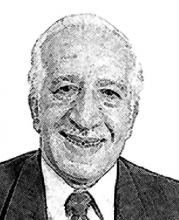You are here
Not in one’s interest
Mar 15,2014 - Last updated at Mar 15,2014
Jordanian-Israeli relations will not be severed, nor will diplomatic ties be cut off.
The relations between the two states are firmly based on solid foundations. Neither an Israeli soldier serving at the King Hussein Bridge nor a Jordanian soldier serving at Baqura could shake the cornerstone of Jordan’s 1994 peace treaty with Israel.
It is not because Israeli Prime Minister Benjamin Netanyahu’s foreign policy is farsighted, nor is it due to Jordan’s wise concept of strategic balance. The fact is that Jordan’s long-term interests demand that, and Israel’s priority options require faithful loyalty to the peace treaty, especially in view of the changes playing havoc with this volatile region.
The demonstrations around the Israeli embassy in Amman are expressions of frustration and anger, not with the murder of Raed Zuaiter only, but because of other issues as well; part of it is political and part the accumulative impact of the social conditions and poverty.
For decades, the higher common interests of Jordan and Israel dictated that they act in non-conventional ways.
In his book “The Lion of Jordan”, a biography of King Hussein, Prof. Avi Shleim, of Oxford University, describes how the echelons of power in the two countries coordinated in the 1950s and 1960s to meet the challenge of Nasserism threatening Jordan and the Arab world.
It is the same farsighted coordination that was pivotal during the internal troubles of September 1970, when the famous “plea for help” against the invading Syrian forces heading to Irbid materialised in the form of heavy military presence that served as a deterrent to those who wanted to topple the regime.
Demonstrators are chanting to abrogate the 1994 peace treaty with Israel, which states in its articles clauses that preserve Jordan’s custodianship of the Muslim holy places.
Many hardline Israelis will be more than happy with such abrogation, as it will give them a free hand to build the third temple there, since neither the one million-soldier Iraqi army, as it used to be a decade ago, or the two million-soldier Egyptian army, or what is left intact of the half a million-soldier Syrian army maintain any real tangible fighting capabilities currently to form a deterrent to the Israelis.
Jordanian hardliners and Israeli hardliners subsist off each other, they feed on each other’s slogans and extremism.
When the Jordanian branch of the Popular Front for the Liberation of Palestine (PFLP) took the lead role in Jordan this week to protest the murder of Zuaiter, its Gaza branch took a similar role in the missile attacks against targets inside the occupied territories.
It is the PFLP’s decades-old dogma to win victory through violent escalation on all fronts. But such dogma is futile, counterproductive and is bound to boomerang eventually.
It might be a wise policy, domestically, to let the masses vent up their steam on Jordanian streets, and within the confines of the Parliament.
It is Jordan’s good fortune to have as the top decision maker His Majesty King Abdullah who has, as he said last week, “Jordan’s higher interests are the only priority”.












